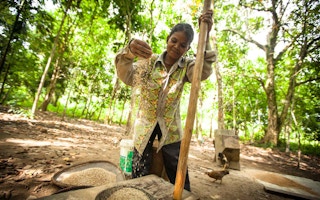The growing role of the private sector and emerging economies in development have made it onto a list of the biggest research needs to achieve the UN’s Sustainable Development Goals (SDGs), collated by academics and nongovernmental organisations.
The list of 100 research areas, drawn up in a paper published last month in Development Policy Review, aims to highlight the most important research questions around the SDGs, which were introduced in September 2015 to replace the Millennium Development Goals.
It includes topics in the physical and life sciences — such as climate change’s impact on health and better energy distribution — along with social science issues such as making the interplay between businesses and marginalised groups fairer, and improving gender equality.
A team of 14 academics and 21 NGO representatives collated the questions, which they describe as “of critical importance for the post-2015 international development agenda”. They are divided into nine main themes, which cover governance, food security, conflict and inequalities.
“The list itself is proof that you can get people to agree,” says co-author Johan Oldekop from the International Forestry and Resources Institutions network at the University of Michigan in the United States. “And the next step is how we can answer these [questions] together.”
The questions cover existing problems — for example how to best improve rural livelihoods — as well as newer issues, including the “role of business in protecting human rights” and “the complex and contested role of middle-income countries” as both donors and recipients of aid. The list was drawn from an initial 704 questions submitted by 110 organisations.
“Collectively, these questions could act as focal points for transdisciplinary research collaborations,” the paper says. This list should also be useful to funding agencies and policymakers, adds co-author Lorenza Fontana from the Open University in the United Kingdom.
Simon Trace, former chief executive of the UK NGO Practical Action, who took part in the consultation, says the list is “an interesting starting point for any research agenda”. However, because of the consultation’s ‘averaging’ process, the shortlist might reflect the 100 most important questions, “but maybe not the 100 most interesting ones”.
“If you try to find something that everybody can agree on, the more surprising, ‘outlier’ questions are knocked out,” he says.
The authors acknowledge another limitation of their study: the low participation of organisations in the global South. Institutions in Europe and North America contributed 74 per cent of the initial long list, with those in Africa, Australasia and Latin America contributing the remaining quarter.
“It is a real challenge to involve equally people from different regions, but something can be done,” says Fontana, who worked on a similar consultation in Latin America in April. “We brought this exercise to the region in Spanish, which helped overcome distance and language barriers, and adapt the method to the regional culture.”
Fontana expects this kind of priority-setting exercise to become more important under the revamped global development agenda. “The SDGs are so huge and have so many targets, and this exercise to prioritise is less arbitrary than a few policymakers deciding on research agendas,” she says. -










